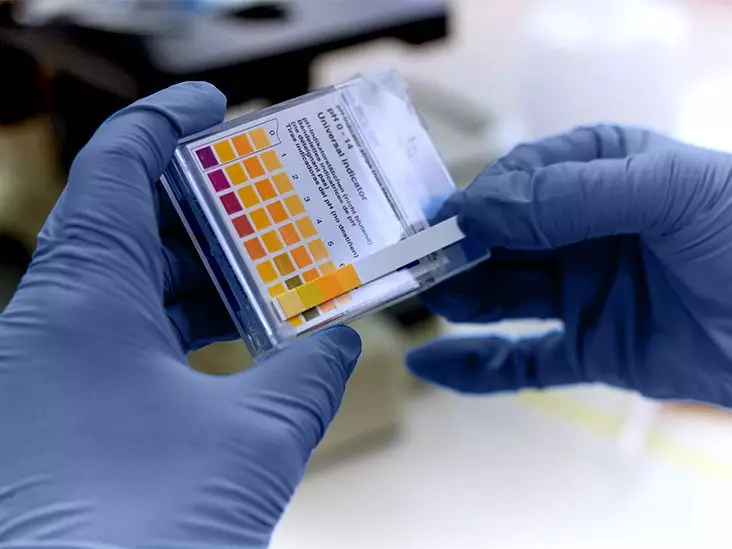Prostate cancer remains one of the leading health concerns for men globally, primarily due to its high prevalence and the significant role of early detection in successful treatment. Traditionally, the Prostate-Specific Antigen (PSA) test has served as the gold standard for screening; however, its limitations are becoming increasingly evident. Elevated PSA levels can stem from a variety of non-cancerous conditions, complicating the diagnostic landscape. This has fueled the search for more reliable, non-invasive biomarkers, which are crucial for advancing the early detection and management of prostate cancer.
The latest research brings much-needed optimism to this field by introducing a innovative urine-based test that leverages artificial intelligence and gene analysis. The ability to detect prostate cancer through urine samples not only enhances accuracy but can also significantly simplify the screening process while minimizing discomfort for patients.
Innovative Biomarkers: A Game Changer
The study published in *Cancer Research* showcases a promising set of urine biomarkers specifically tailored for prostate cancer detection and severity assessment. Unlike the conventional PSA test, which often results in false positives, these newly identified markers appear to demonstrate superior diagnostic precision. Researchers analyzed mRNA activity across thousands of tumor cells, applying machine learning techniques to pinpoint proteins that signal the presence of cancer.
This groundbreaking approach marks a substantial paradigm shift in prostate cancer diagnostics. Martin Smelik, the first author of the study, highlighted the non-invasive nature of the urine test, noting its effectiveness in outperforming PSA tests. The prospect of using a simple urine sample for early prostate cancer identification can potentially alleviate the psychological and physical burdens associated with invasive diagnostic procedures.
Artificial Intelligence: The Catalyst for Change
One of the most striking elements of this research is the integration of artificial intelligence (AI) in developing the biomarker models. AI’s ability to process and analyze vast amounts of data rapidly is revolutionizing many fields, and prostate cancer diagnosis is no exception. By inputting detailed genetic data from tumor cells, AI can identify unique patterns that might remain elusive through traditional analysis methods. This capability not only accelerates diagnoses but also paves the way for customized treatment plans based on specific genetic markers.
Experts like Milan Sheth underscore the excitement surrounding this study, recognizing it as a significant leap towards enhanced diagnostic accuracy and personalization in medicine. The ability to accurately distinguish between varying severities of prostate cancer through a urine test has the potential to save lives by enabling timely interventions.
Reducing Unnecessary Biopsies
One of the most critical benefits of transitioning to urine-based biomarkers is the potential to reduce the number of unnecessary biopsies. Currently, biopsies are invasive, frequently leading to complications that can deter patients from seeking further medical help. The introduction of a reliable, non-invasive test that can differentiate non-cancerous conditions from cancerous ones could mitigate the need for these procedures, sparing patients from discomfort and associated risks.
Experts in the field are optimistic about the broader implications of these findings for prostate screening programs. If validated through large-scale clinical trials, the integration of urine biomarkers could streamline testing processes and make them more accessible to a wider population in the UK and beyond.
A Broader Vision for Cancer Diagnostics
While the primary focus of this study is prostate cancer, its implications extend far beyond. Researchers express a desire to use similar methodologies to explore biomarkers for other cancer types. This ambitious vision underscores the versatile potential of urine as a diagnostic medium and signals a robust future for non-invasive cancer screening options.
Dr. Ramkishen Narayanan emphasizes that, although PSA has been the only reliable biomarker for prostate cancer for nearly half a century, there is a pressing need for more dynamic biomarkers. The local fluids surrounding the prostate suggest urine may harbor valuable information that can enhance diagnostic accuracy and patient outcomes.
The scientific community is now challenged to not only validate this research through rigorous testing but also to prioritize collaborative approaches. Given the existing financial constraints around complex studies like spatial transcriptomics, a unified global effort could propel these necessary advancements, ultimately benefiting public health.
The innovative use of urine biomarkers in prostate cancer diagnosis represents not only a technical breakthrough but also a significant step towards a future where cancer detection is efficient, accessible, and patient-friendly.

